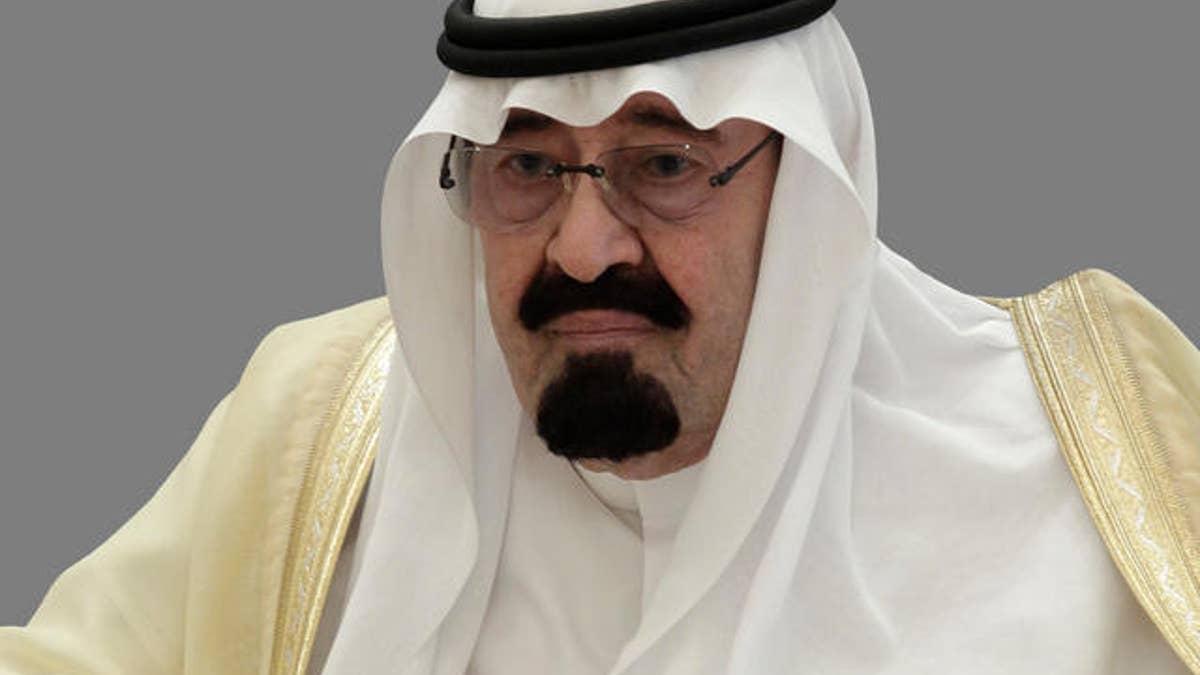
May 14, 2012 - FILE photo of King Abdullah Bin Abdull-Aziz Al-Saud of Saudi Arabia. (AP)
RIYADH, Saudi Arabia – The Saudi king on Friday granted women seats on the country's top advisory council for first time, a much-awaited step for women to get a toehold in Saudi Arabia where males dominate the political system and ultraconservative religious Islam law tightly controls daily life of females.
The appointments come against the backdrop of heavy restrictions on women who are not allowed to travel, work, study abroad, marry, get divorced or gain admittance to a public hospital, without permission from a male guardian. Recently, airport authorities were instructed to send text messages to the phones of male guardians -- husbands, fathers or brothers -- with information about the movements of their wives, daughters or sisters.
"The decision is good but women issues are still hanging," said Wajeha al-Hawidar, a prominent Saudi female activist. "For normal woman, there are so many laws and measures that must be suspended or amended for women to be dealt with as grown-ups and adults, without a mandate from guardians."
But she said that having female members of the council could help to change women's image in society.
"Men can finally respect women when they see them playing a male role," she said.
The nation's official news agency said that King Abdullah issued two royal decrees granting women 30 seats on the Shura Council, which has 150 members plus a president. The council reviews laws and questions ministers, but doesn't have legislative powers. All members are appointed by the king and serve four-year terms.
Since 2006, women have been appointed as advisers only.
The decree comes in response to rights advocates' demands to give a voice to women, many of whom have been challenging the country's religious establishment, which adheres to Wahhabism, one of the strictest interpretations of Shariah law in Islam.
The king appeared to be treading carefully to not anger powerful religious clerics. In modern Saudi Arabia, which is the birthplace of Islam, the governing Al Saud family supports the clerics, and the clerics support the family's rule.
According to the decrees, the female council members must be "committed to Islamic Shariah disciplines without any violations" and be "restrained by the religious veil." The decrees also said that the female council members will be entering the council building from special gates, sit in seats reserved for women and pray in special worshipping places.
Earlier, officials said that a screen will separate genders and an internal communications network will allow men and women to communicate.
Wahhabism, well-known for its segregation of the sexes, insists on ideological purity and calls for harsh punishments, such as beheadings and hand amputations, for some crimes. Under the law, clerics sit as judges in courts and religious police prevent unmarried or unrelated men and women from mixing.
In the kingdom, unrelated couples, for example, can be punished for being alone in the same car or having a cup of coffee in public. Saudis observe such segregation even at home, where they have separate living rooms for male and female guests.
The king's decrees come as part of his incremental steps toward modernization.
In 2009, he inaugurated the first university where male and female students share classes. He also granted women the right to run for office in the 2015 municipal elections for the first time and candidates won't need a male guardian approval to run or vote.
